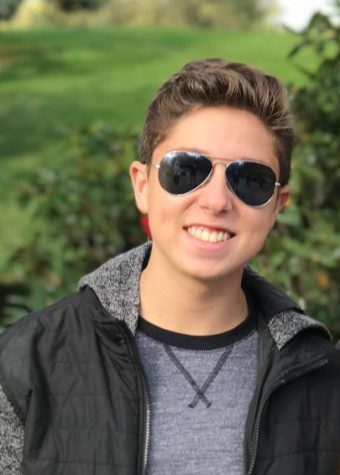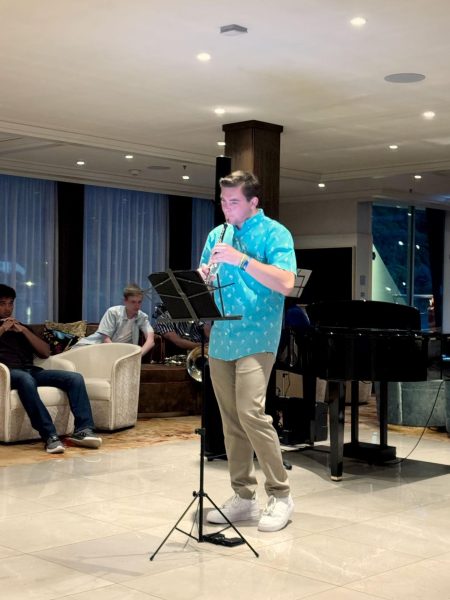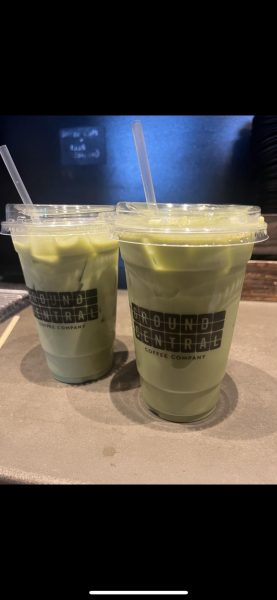Here’s Why 13 Reasons Why Critics Are Way Off Base
In recent months, a Netflix original series based on Jay Asher’s 2017 book, Thirteen Reasons Why, has gained immense popularity amongst young adults across the nation. The thirteen-episode series tells the story of the tragic suicide of high school student Hannah Baker (Katherine Langford) through the eyes of her close friend Clay Jensen (Dylan Minnette). The story begins when a package is left at Clay’s doorstep, containing thirteen cassette tapes, each containing audio of Hannah explaining one reason why she decided to commit suicide. Each episode, narrated by Hannah, tells the story of one of the tapes as Clay listens to them, but the events Hannah explains in the past are interrupted and paralleled by the present storyline, which describes how the community, her parents, teachers, and classmates, react and cope with her suicide as new information comes to light.
Weeks after its release, 13 Reasons Why, already had a massive social media following. Although the initial appeal of the show was its value as entertainment, like any other television craze, jokes and memes (internet jokes), eventually took precedence. Phrases like, “welcome to your tape” began to circulate colloquially as a way to say jokingly, “you’re a reason I’d kill myself.” Although the latter phrasing has a much darker connotation than the former, any “joke” about suicide is no joke at all. For this reason, among others, health professionals, parents, and school administrators have deemed the show inaccurate and inappropriate for young students to be watching. The other issues concern what such critics consider glamorizing or romanticizing of suicide. South Middle School has even gone as far as to email a letter urging parents to add parental controls to their Netflix accounts to block the show.
Despite its issues, 13 Reasons Why, is the most relevant and honest television show to ever gain significance with 21st century youths. Many of the show’s adult critics have yet to even see it, but assume that any big network television show must be dramatized to improve ratings; however, with this show, that just isn’t the case. “As a high school student, I believe that the dramatizations in the show that some think are excessive actually serve to reinforce the lessons the show teaches without being misleading to the audience about the realities of depression and suicide,” says sophomore Alyssa Burton. “The show opened my eyes on how much our little everyday actions can affect someone in the long run. People should definitely watch it if they have the time,” adds junior Zack Leder.
The show really is unique in that it balances the elements of entertainment and realism in a way that’s never been perfected before. This was attainable firstly because Netflix is not the same as any other network on cable television. The entertainment streaming industry is up-and-coming, and thus, the people behind Netflix original programming are much more in tune with the lives of younger generations than their big network counterparts. Second, the show was created with its health education applications in mind. Included in the series is a discussion episode, in which the writers, producers, and actors describe the intent behind the show as a whole, rationale for the way certain scenes are portrayed, and what the work means to them. After watching that episode, it is clear that the show was genuinely intended to be true to the realities of depression and teen suicide in our country, however painful that candidness was to create. The result was a knockout; they really hit the nail on the head. As a viewer of the show, the characters feel real. Every detail, down to the act of suicide itself, was well thought out and well executed.
Health and Physical Education Teacher Jen Kramer says, “There’s a couple of reasons why I am glad that this has gotten as much publicity as it has. One of those reasons is that it has sparked conversations about topics that have not been spoken about and need to be spoken about. Even though the book has been out for a long time, this is really the first time teenagers have been exposed to something really relevant to what they are going through.”
Burton agrees saying, “13 reasons why is an important show for both parents and kids to watch because it teaches us how even small actions can affect people in a big way. And, the show is especially effective in teenagers because they can relate to the characters; everyone has their struggles and problems and things that make them feel upset or depressed, and seeing a show that actually has teenagers who are affected by loss and going through the same things that we are is powerful, and it shows everyone that it’s okay to feel that way.”
The only real issue the show poses is that younger students are often unequipped with the tools to interpret all the elements of the show. For example, a young boy may see popular jock Bryce Walker (Justin Prentice) sexually harass another character on the show and think that he should be doing that, too, but the show is really trying to convey the opposite. However, the risk of misinterpretation is not the fault of the show, but rather the negligence of the education system. Due to the internet, young kids are inevitably going to be exposed to media online or in the news that deals with difficult topics like depression, suicide, and sexual harassment. 13 Reasons Why is not part of this problem, it’s actually the solution. Instead of trying to prevent students from seeing the show, we should be utilizing it as an educational tool to prepare students for when they are exposed to those difficult issues in the real world. Lessons about depression and suicide need to be introduced earlier, and having students watch this show with educational guidance is a perfect way to present the content in a relatable and effective, yet safe manner.
“As an educator and a parent, I am going to ensure that my children and students get the discussion that’s necessary, but what really concerns me is that some children won’t. You only get a suicide prevention lesson once as of now. You never get taught about these things in elementary and middle school, and if it was taught earlier, students would be able to make the connection that ‘popular’ characters like Bryce should not be a role model for them. I think the sexual assault plot, too, is one of those really important conversations that needs to be had. I don’t think we pay enough attention to sexual assault amongst teens, and this show has brought it to the surface, which forces us to talk about it, and when we talk about things, we can educate about things, and that makes victims feel less alone. It [the sexual assault] is a hard scene to watch and it’s awful to think about as a parent, but it’s real life and it’s the first time a show has really said ‘here it is.’ This is series will make people begin to realize the importance of health education,” says Kramer.
Overall, 13 Reasons Why requires viewers to feel and think about things they might not be comfortable with, but the poignant issues it brings up need to be discussed. Watching the show is a great start to bridging the health education gap in our country, which is why parents and students alike should get to it right away.

I began participating in Horizon as a writer in my freshman year, and I was editor for A&E as a sophomore. As editor-in-chief of the website my junior...



















